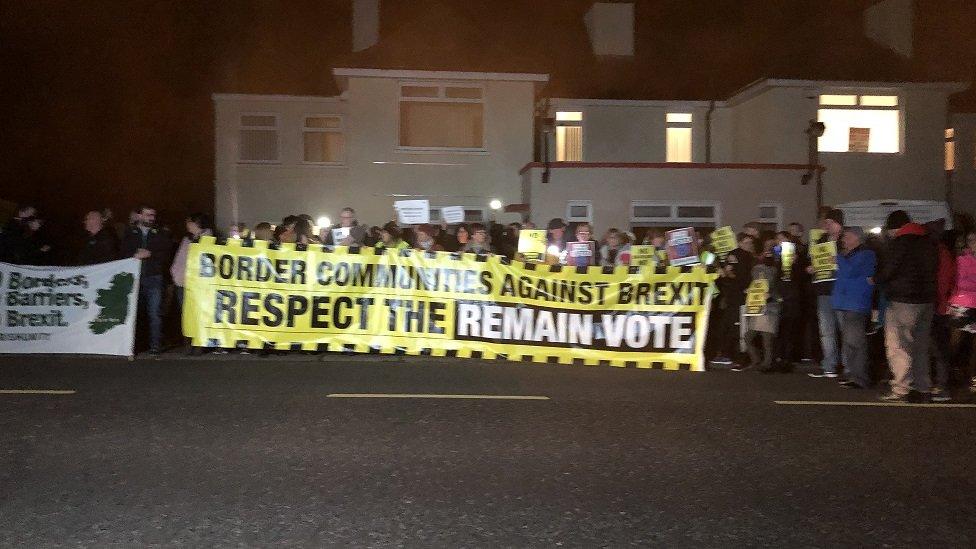Brexit: DUP 'encouraging' Tory MPs to reject deal
- Published
- comments
Sammy Wilson tells Good Morning Ulster the DUP will not support the draft Brexit deal
The Democratic Unionist Party (DUP) has said it is encouraging Conservative MPs to vote down Prime Minister Boris Johnson's new Brexit deal on Saturday.
The UK and EU announced a revised plan that includes different proposals to avoid a hard Irish border.
But the DUP will not support it and has claimed the deal is not in Northern Ireland's best interests.
Its backing is seen as crucial if the government is to pass a deal in the Commons by the 31 October deadline.
MPs are due to decide on the deal during a special sitting of Parliament on Saturday, in what is expected to be a knife-edge vote.
Mr Johnson has said he was "very confident" MPs would back his deal.
Sammy Wilson, the DUP's Brexit spokesman, said on Friday that his party was talking to Conservative MPs in a bid to vote down the plan.
He said the DUP was encouraging Tory MPs to "take a stand" with them.
Boris Johnson: "Chance to move on" with Brexit
A number of Conservative MPs in the Eurosceptic European Research Group (ERG) have supported the DUP's stance on Brexit in the past but it is not clear if any of them will vote against the government this time.
Mr Wilson added that the DUP was "always prepared" for the possibility that the prime minister might turn his back on working with the party.
He said the party had not spoken to Mr Johnson since Tuesday.
"He's knows us well enough to know that we will not sell Northern Ireland short in the way in which this deal sells Northern Ireland short," he said.
"So that is probably the reason he hasn't come to us."
On Thursday, the DUP's deputy leader Nigel Dodds said Mr Johnson had been "too eager to get a deal at any cost".
DUP: PM 'too eager for deal at any cost'
Mr Wilson argued that voting down the deal in Parliament was not the end and would "open up the possibility" for the government to call a general election and win a majority.
If the government loses Saturday's vote the prime minister is legally required to ask the EU for another extension to the Brexit deadline.
Ex-PMs unite to oppose deal
Former prime ministers Sir John Major and Tony Blair appealed on Friday for MPs not to vote for the deal, claiming it would "wreck" the 1998 Good Friday peace agreement, which led to the end of the Troubles in Northern Ireland.
They called for another referendum on Brexit.
Sir John said the deal "splits Northern Ireland from the rest of the UK".
He added: "That, of course, always plays on the inherent fears of Northern Ireland - that they're being ignored, that they're being maltreated."
Mr Blair said the Northern Ireland peace process could be "sacrificed on the Brexit altar".
Former Northern Ireland first minister Lord Trimble, who won a Nobel Peace Prize for his role in Good Friday Agreement, backed the deal.
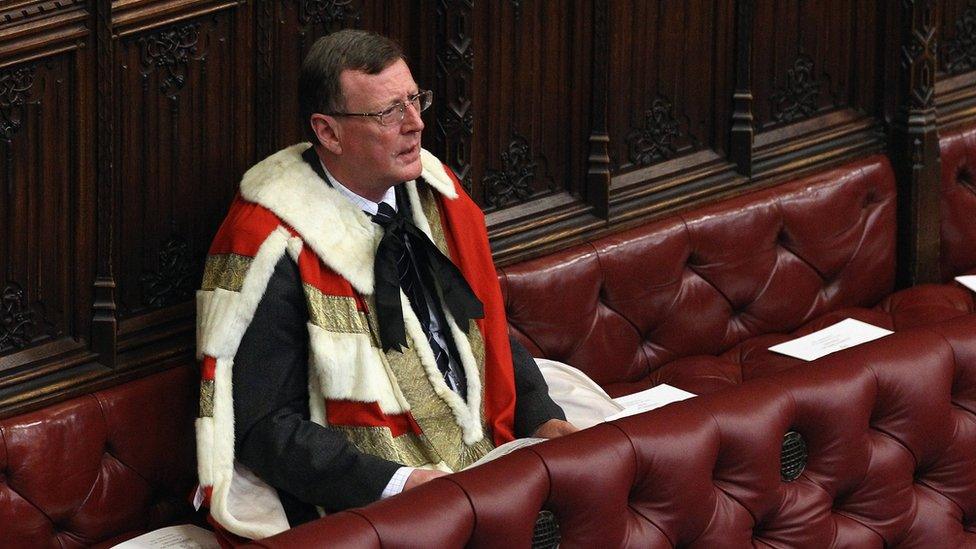
Lord Trimble, a Conservative peer, was one of the key architects of the Good Friday Agreement
In a statement published by the Spectator, the former Ulster Unionist leader said it was a "great step forward" that was "fully in accordance with the spirit of the Good Friday Agreement".
"What we now want to see is for the DUP and Sinn Féin to act together to bring the Good Friday Agreement back to life," said the Tory peer.
"This is not the time to be looking for excuses not to implement either the Good Friday Agreement or the new deal."
What does the deal involve for NI?
The new Brexit deal would involve Stormont giving ongoing consent to any special arrangements for Northern Ireland via a straight majority.
Pro-EU parties have a narrow majority at Stormont and there would be no unionist veto, as demanded by the DUP.
Northern Ireland would continue to follow EU rules on food safety and product standards and would also leave the EU customs union.
But EU customs procedures would still apply on goods coming into Northern Ireland from Great Britain in order to avoid checks at the border.
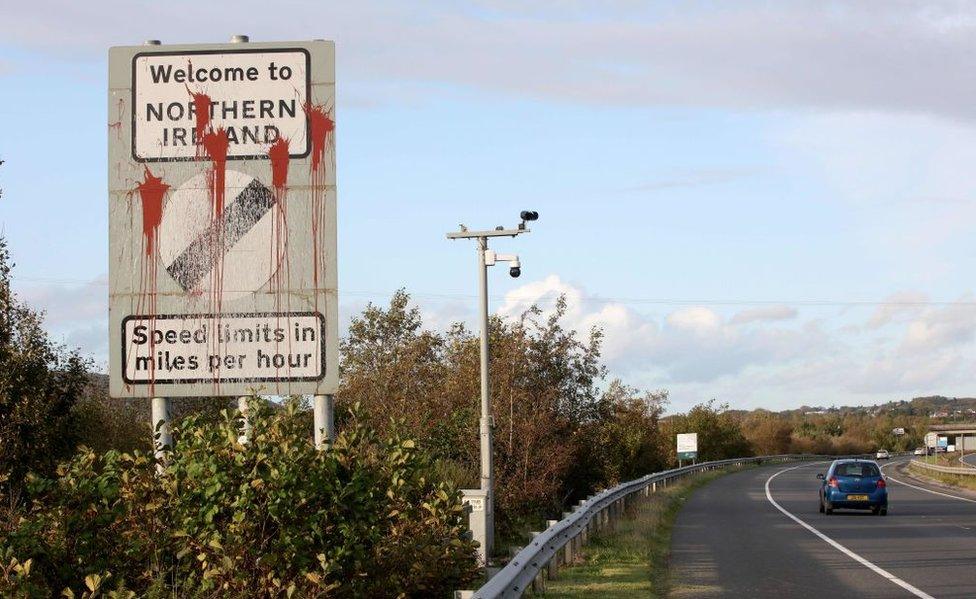
The issue of the Irish border has been the most contentious in the Brexit talks
Stormont would have to approve those arrangements on an ongoing basis.
Approval would involve a straight-forward majority, which would keep the special arrangements in place for four years.
Alternatively, if the arrangements are approved by a majority of nationalists and a majority of unionists, they would remain in place for eight years.
If the Northern Ireland Assembly voted to end the arrangements there would be a two-year notice period, during which the UK and the EU would have to agree ways to protect the peace process and avoid a hard border.
There is no fallback position in case the two sides cannot find a solution.
If a vote was not held - by choice or because the assembly was not sitting - then the government has committed to finding an "alternative process".
- Published18 October 2019
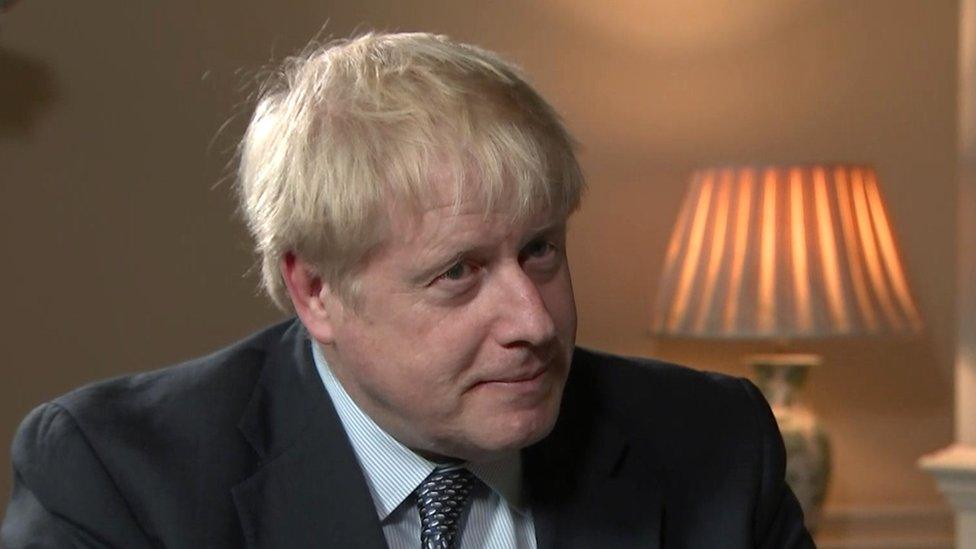
- Published17 October 2019
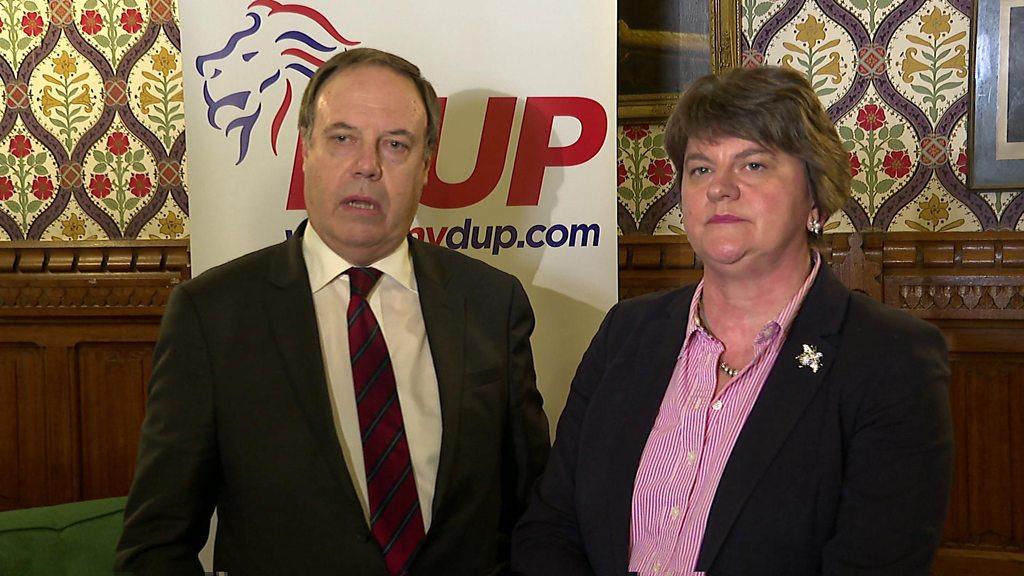
- Published17 October 2019
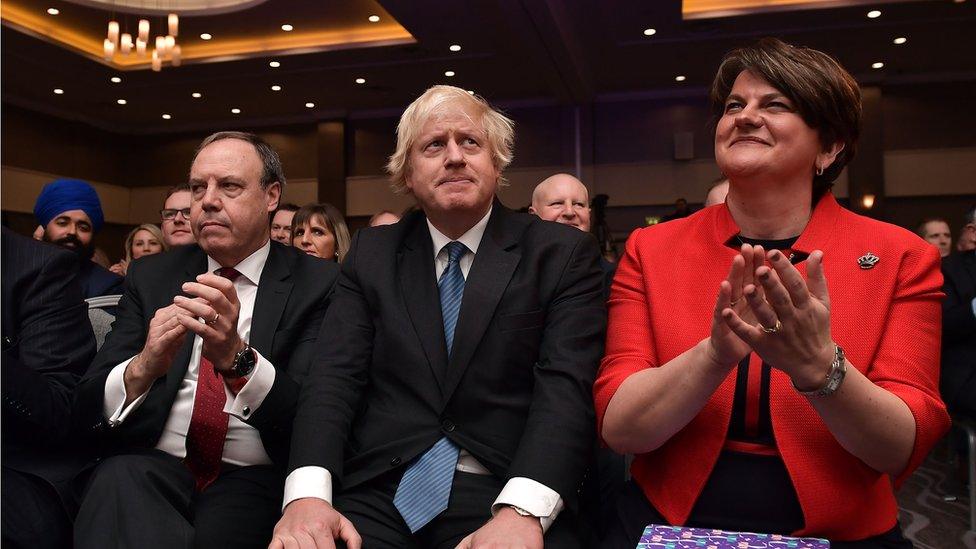
- Published17 October 2019
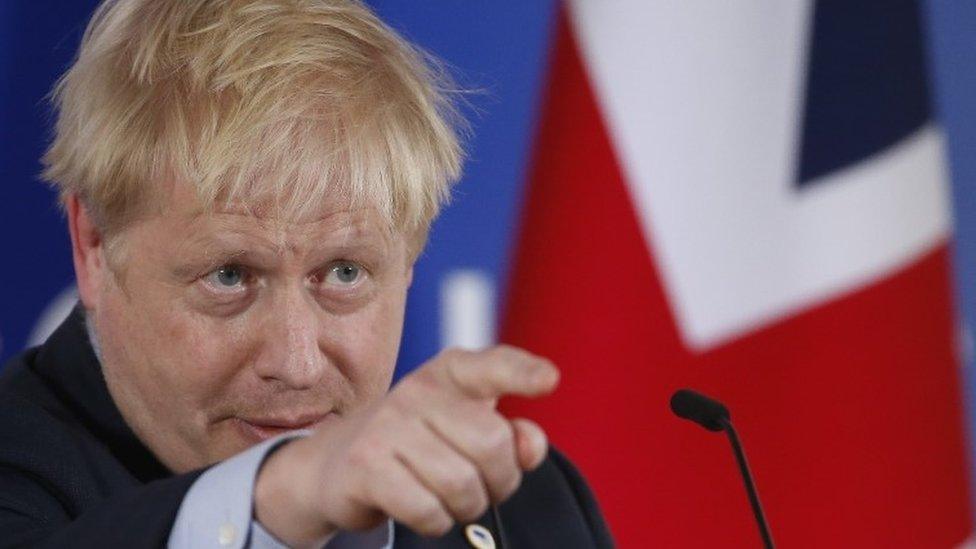
- Published17 October 2019
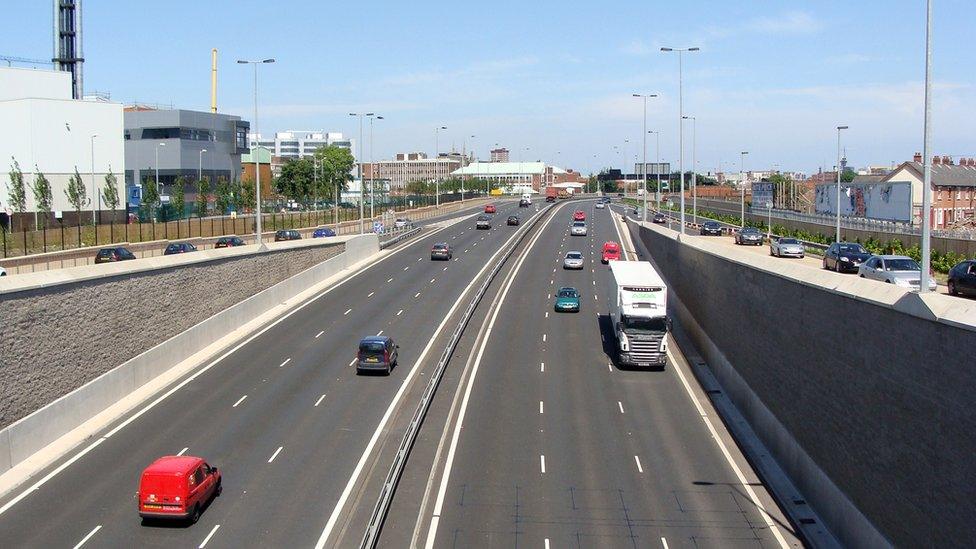
- Published21 October 2019

- Published17 October 2019
- Published16 October 2019

- Published16 October 2019
